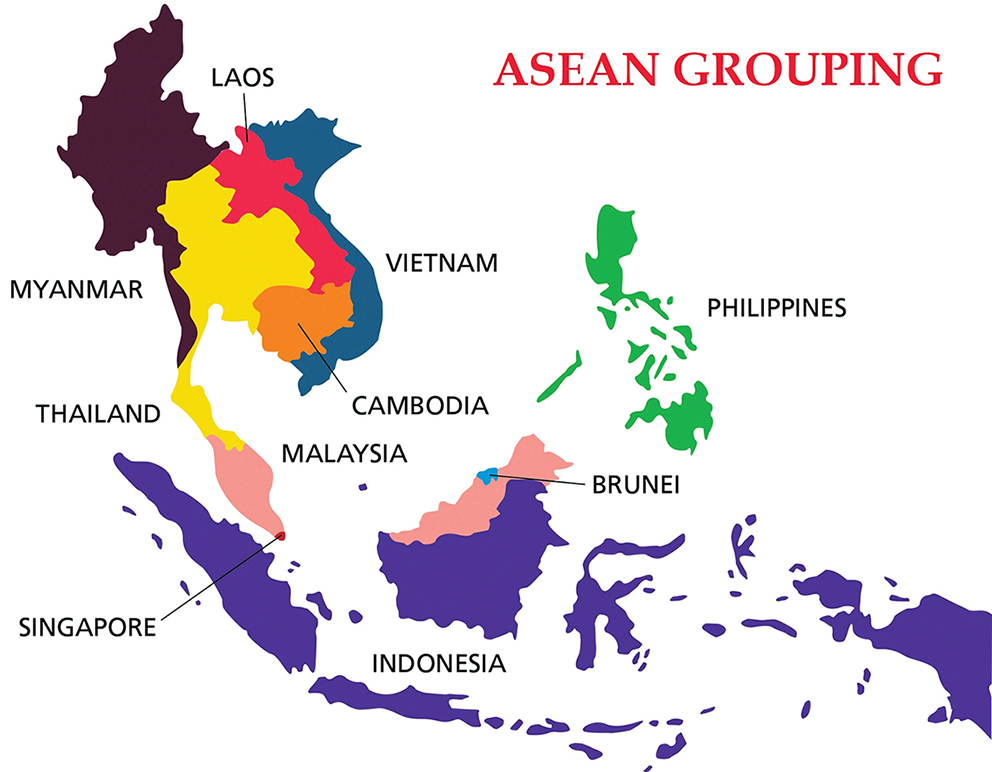International Relations
18th India-ASEAN Summit
- 02 Nov 2021
- 6 min read
Why in News
Recently, India participated in the 18th India-ASEAN Summit at the invitation of Brunei, the current Chair of ASEAN.
- The Year 2022 has been highlighted as India-ASEAN Friendship by the leaders.
- India-ASEAN Summit is held every year and provides an opportunity for India and Asean to engage at the highest level.
Key Points
- ASEAN in Act East Policy:
- The centrality of ASEAN in India's Act East Policy and in India's Vision for the wider Indo-Pacific Vision has been underlined.
- Welcomed the adoption of the India-ASEAN Joint Statement on cooperation for peace, stability and prosperity in the region, building upon the synergies between the ASEAN Outlook for the Indo-Pacific (AOIP) and India’s Indo-Pacific Oceans Initiative (IPOI).
- Recently, India also addressed the 16th East Asia Summit, where it reaffirmed India's focus on a free, open and inclusive Indo-Pacific and the principle of Asean Centrality in the region.
- India-ASEAN Connectivity:
- Exchanged views on enhancing India-ASEAN connectivity in broadest terms including physical, digital and people to people.
- India announced its support for establishing the ASEAN Cultural Heritage List to further strengthen India-ASEAN cultural connectivity.
- Trade and Investment:
- The importance of diversification and resilience of supply chains for post-Covid economic recovery and in this regard, the need to revamp the India-ASEAN Free Trade Agreement (FTA) has been underlined.
- Rule-Based Order:
- Regional and international issues of common interest and concern, including South China Sea and terrorism.
- The importance of promoting a rules-based order in the region including through upholding adherence to international law, especially the UNCLOS.
- Covid-19:
- Highlighted India’s efforts in the fight against the pandemic in the region and also reiterated support for ASEAN’s initiatives in this regard.
- India has contributed medical supplies worth USD 200,000 to ASEAN’s humanitarian initiative for Myanmar and USD 1 million for ASEAN’s Covid-19 Response Fund.
- Highlighted India’s efforts in the fight against the pandemic in the region and also reiterated support for ASEAN’s initiatives in this regard.
India-ASEAN and China
- Traditionally the basis of India-ASEAN ties has been trade and people-to-people ties due to shared historical and cultural roots, a more recent and urgent area of convergence has been balancing China’s rise.
- Both India and ASEAN aim to establish a rules-based security architecture for peaceful development in the region, in contrast to China’s aggressive policies.
- Like India, several ASEAN members such as Vietnam, the Philippines, Malaysia, and Brunei have territorial disputes with China, the China factor does form an important component of the relationship.
- India in 2014 reinvigorated the Look East policy into Act East, with a more strategic outlook than its previous incarnation, focusing on engagement not just with Southeast Asian countries but also those in the Pacific.
Association of Southeast Asian Nations (ASEAN)
- About:
- It is a regional grouping that promotes economic, political, and security cooperation.
- It was established in August 1967 in Bangkok, Thailand with the signing of the ASEAN Declaration (Bangkok Declaration) by the founding fathers of ASEAN, namely Indonesia, Malaysia, Philippines, Singapore and Thailand.
- Its chairmanship rotates annually, based on the alphabetical order of the English names of Member States.
- ASEAN countries have a total population of 650 million people and a combined Gross Domestic Product (GDP) of USD 2.8 trillion. It is India’s 4th largest trading partner with about USD 86.9 billion in trade.
- Members:
- ASEAN brings together ten Southeast Asian states – Brunei, Cambodia, Indonesia, Laos, Malaysia, Myanmar, the Philippines, Singapore, Thailand and Vietnam – into one organisation.
ASEAN Outlook on the Indo-Pacific
- It offers an outlook to guide cooperation in the region and enhance ASEAN’s Community building process and further strengthen the existing ASEAN-led mechanisms, such as the East Asia Summit.
- Its main objectives are helping to promote an enabling environment for peace, stability and prosperity in the region in addressing common challenges, upholding the rules-based regional architecture, and promoting closer economic cooperation, and thus strengthening confidence and trust.
- And implementing existing and exploring other ASEAN priority areas of cooperation, including maritime cooperation, connectivity, the Sustainable Development Goals (SDGs), and economic and other possible areas of cooperation.
India’s Indo-Pacific Oceans Initiative (IPOI)
- It is an open, non-treaty based initiative for countries to work together for cooperative and collaborative solutions to common challenges in the region. IPOI draws on existing regional architecture and mechanisms to focus on seven pillars: Maritime Security. Maritime Ecology.
- It draws on existing regional architecture and mechanisms to focus on seven pillars:
- Maritime Security
- Maritime Ecology
- Maritime Resources
- Capacity Building and Resource Sharing
- Disaster Risk Reduction and Management
- Science, Technology and Academic Cooperation
- Trade Connectivity and Maritime Transport





